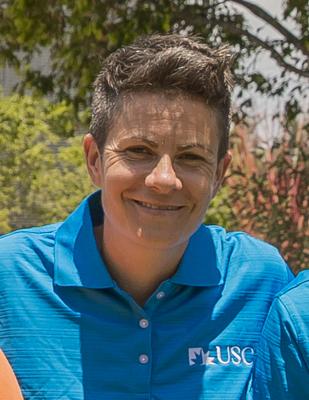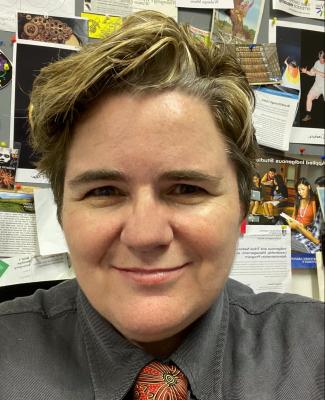Nearly $2 million in Australian Research Council Future Fellowships have been awarded to two researchers from USC.
Associate Professor Sandy O’Sullivan will receive $1 million to study and map the complex identities of First Nations peoples; and Associate Professor Celine Frere will receive nearly $970,000 to help protect wildlife from emerging fungal diseases.
The fellowships – two of 100 awarded across Australian universities yesterday – will enable the conduct of their research for the next four years.
USC Deputy Vice-Chancellor (Research) Professor Roland De Marco said USC’s historic average was one Future Fellowship every two years, but to win two in one round was “well in excess of USC’s proportionate share of the Australian pool”.
“This is another watershed moment for research at USC and we can be very proud of the wonderful success of our researchers,” Professor De Marco said.
Dr O’Sullivan, a Wiradjuri academic and Creative Industries scholar, says the funding will contribute to research that challenge simplistic perceptions of what constitutes ‘Indigenous Australia’, through the Saving Lives project.
“I plan to map the unique contribution, influence and impact of Indigenous LGBTIQ+ creative artists to understand how modelling complex diversities enhances wellbeing in Aboriginal and Torres Strait Islander peoples and communities,” Dr O’Sullivan said.
“The outcomes will be used to advance understandings of positive, diverse role modelling to the creative sector and national and international First Nations communities and provide significant benefits to wellbeing and identity affirmation.”
Dr Frere, a behavioral ecologist and leader of the USC Detection Dogs for Conservation team, says the funding will help her team improve knowledge about the key role that animal social behaviour plays in the spread of emerging infectious fungal diseases.
“We expect to learn more about how fungal diseases spread through animal populations, how social behaviour influences transmission, and how disease status affects animal social behaviour,” Dr Frere said.
“This information will inform much-needed control strategies to benefit wildlife and preserve biodiversity.”
The Australian Research Council Future Fellowships support world-leading mid-career researchers to expand Australia’s knowledge base and research capacity to provide economic, commercial, environmental, social and cultural benefits for Australia.








